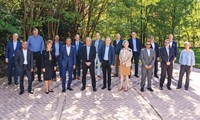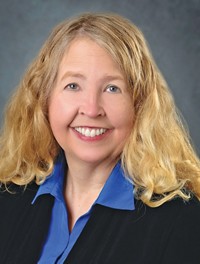Advertisement
Grab your lab coat. Let's get started
Welcome!
Welcome!
Create an account below to get 6 C&EN articles per month, receive newsletters and more - all free.
It seems this is your first time logging in online. Please enter the following information to continue.
As an ACS member you automatically get access to this site. All we need is few more details to create your reading experience.
Not you? Sign in with a different account.
Not you? Sign in with a different account.
ERROR 1
ERROR 1
ERROR 2
ERROR 2
ERROR 2
ERROR 2
ERROR 2
Password and Confirm password must match.
If you have an ACS member number, please enter it here so we can link this account to your membership. (optional)
ERROR 2
ACS values your privacy. By submitting your information, you are gaining access to C&EN and subscribing to our weekly newsletter. We use the information you provide to make your reading experience better, and we will never sell your data to third party members.
Environment
Matchmaking
State Department aims to link former Soviet arms scientists with Western firms
by LOIS EMBER
October 4, 2004
| A version of this story appeared in
Volume 82, Issue 40
NONPROLIFERATION
A matchmaking conference took place on Sept. 27–29 in Moscow to link up former Soviet chemical weapons scientists with Western companies. Sponsored by the State Department's Bio-Chem Redirect Program, the meeting aimed to find support for commercially viable research and to prevent the scientists from selling their expertise to rogue nations or terrorists.
This is the first time that the State Department's nonproliferation efforts have focused on former chemical weapons scientists. Most of the past and current endeavors have concentrated on helping Russia, a former Soviet state, get rid of its vast arsenal of chemical weapons.
According to Laura Schmidt Williams, director of the redirect program, "This conference is a cornerstone of our strategy to support sustainable long-term employment in the civilian sphere for these scientists." Previous engagement efforts, she explains, "have focused on the nuclear, missile, and biological scientific community, [and] this substantial body of former chemical weapons expertise has been underengaged."
"This event was the first ever conference focused on introducing former Soviet chemical weapons scientists to Western partners and collaborators."
Laura Schmidt Williams, director of the State Department's Bio-Chem Redirect Program
The conference attracted more than 300 people representing 40 companies--including Dow, DuPont, General Electric, Pfizer, Solutia, and UOP--and 26 key research or production institutes in Russia and Eurasia. These institutes specialize in organic and inorganic chemistry, polymer chemistry and catalysis, analytical chemistry, toxicology and environmental testing, and occupational risk assessment. Several U.S. and Canadian universities also sent representatives.
Russian and Eurasian scientists marketed themselves by presenting overviews of their technical expertise, collaborative interests, and research projects to the Western companies. Technical areas that were spotlighted included organic and inorganic synthesis, drug discovery and development, toxicology testing, and environmental monitoring and remediation.
Advertisement
On the flip side, industry representatives delivered presentations on what Western companies are looking for, how projects are selected, and lessons learned from past and current collaborations.




Join the conversation
Contact the reporter
Submit a Letter to the Editor for publication
Engage with us on Twitter